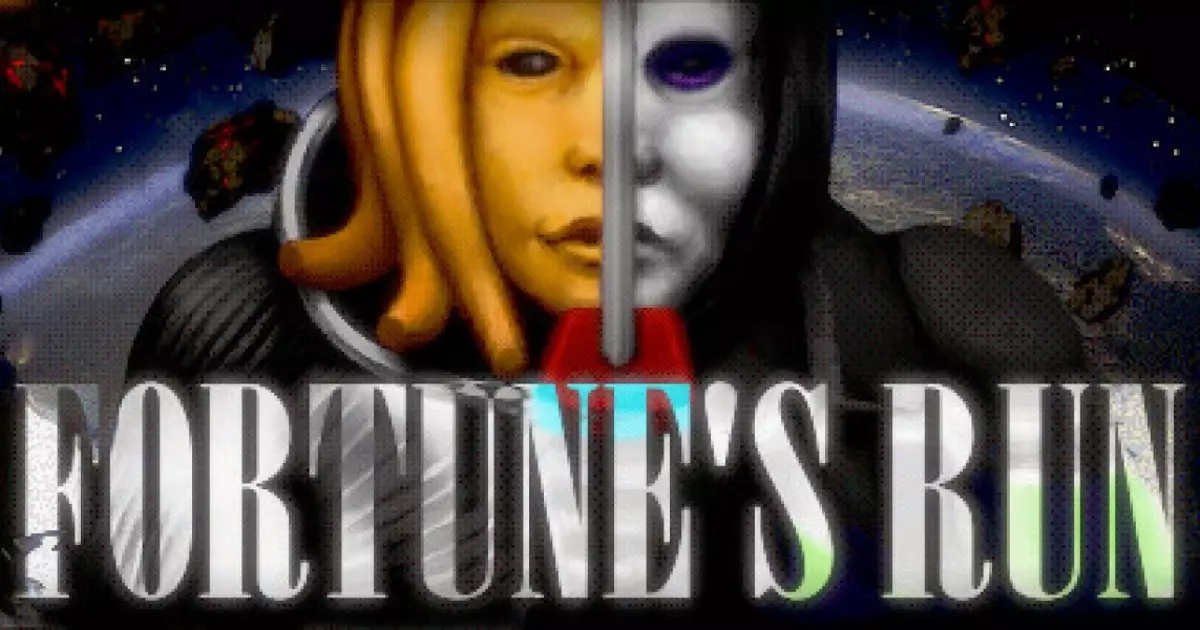The independent gaming scene is no stranger to the unpredictable paths that developers often navigate. However, the recent developments surrounding Fortune’s Run, an immersive sim-shooter, have thrown an unexpected and sobering turn into the narrative of its creation. Dizzie, the sole creator behind the project, has announced a pause on the game’s development due to his impending incarceration, which raises serious questions about the impact of personal choices on creative ventures.
Dizzie’s decision to halt the game arises from a serious conviction for a violent crime, the specific details of which remain undisclosed. This announcement, made through a poignant Steam developer post, reveals a disheartening saga that has unfolded over five years. The complexities of the legal system and its ramifications on personal lives are highlighted in his reflection: “It’s a long story, but I’ve lived a very different life before I was a game developer.” This statement alone encapsulates a duality—Dizzie’s past life overshadowing his present aspirations, illustrating how previous actions can reverberate through an individual’s professional realm.
While his sentence is definitive, the emotional burden and acknowledgment of past mistakes appear profoundly rooted in his message. His candid admission of being a “very violent person” suggests a transformative journey fraught with difficulties, yet it simultaneously raises questions about accountability and the path to forgiveness—not just from society but from oneself as well. The gamer community cannot help but reflect on how such personal narratives affect artistic expression and development timelines.
The situation is further complicated by the departure of Arachne, the other developer involved in Fortune’s Run. Following a mishandled surgical procedure, Arachne stepped away from game development, and Dizzie was left to carry the weight of the project alone. Their statement regarding her exit underscores an important aspect often overlooked in the world of indie games: the fragility of team dynamics. Creative endeavors often necessitate a seamless and collaborative environment; when a key member departs, the project’s integrity can suffer significantly.
Dizzie’s clarification that Arachne’s departure is not connected to his legal troubles is noteworthy, emphasizing the complexities of their professional relationship. Despite the separation being unrelated to the core issue, it reflects the stresses and strains of managing a creative project under personal duress. The recent revelations also beg the question about the well-being of team members in such high-stake scenarios and how a developer’s personal life can inadvertently affect their colleagues.
As the project faces an uncertain hiatus, many in the gaming community are left contemplating the future of Fortune’s Run. Will Dizzie be able to return to development after serving his sentence? According to his update, the game itself has seen significant content completion, and he remains hopeful about resuming work after his release. Yet optimism in such a situation must be tempered by understanding the long-term effects of incarceration on an individual’s personal and professional life.
The success the game has garnered up to this point provides a structural cushion for Dizzie, potentially allowing him to sustain himself post-incarceration. However, it reframes the question of whether success can outweigh personal struggle. Will the gaming world welcome him back with open arms, or will past actions linger in the minds of players and fellow developers alike?
The narrative surrounding Fortune’s Run serves as a cautionary tale of the intersection between personal choices and creative endeavors. In an art form that thrives on stories, the ethos of the creator often finds its way into the work produced. Dizzie’s situation challenges prevailing notions of redemption and the acceptance of flawed individuals within creative industries. As he grapples with the consequences of his past actions, the community will undoubtedly continue to reflect on how these complexities shape the creative landscape.
Ultimately, Fortune’s Run stands not just as a project caught in a tumultuous moment but as a microcosm of the larger struggles facing many creators in the gaming industry. The desire to tell stories and push creative boundaries is often entwined with personal journeys that can alter their trajectory in profound ways. As players await the game’s next chapter, they may also ponder the stories behind those who create the worlds they love.


Leave a Reply